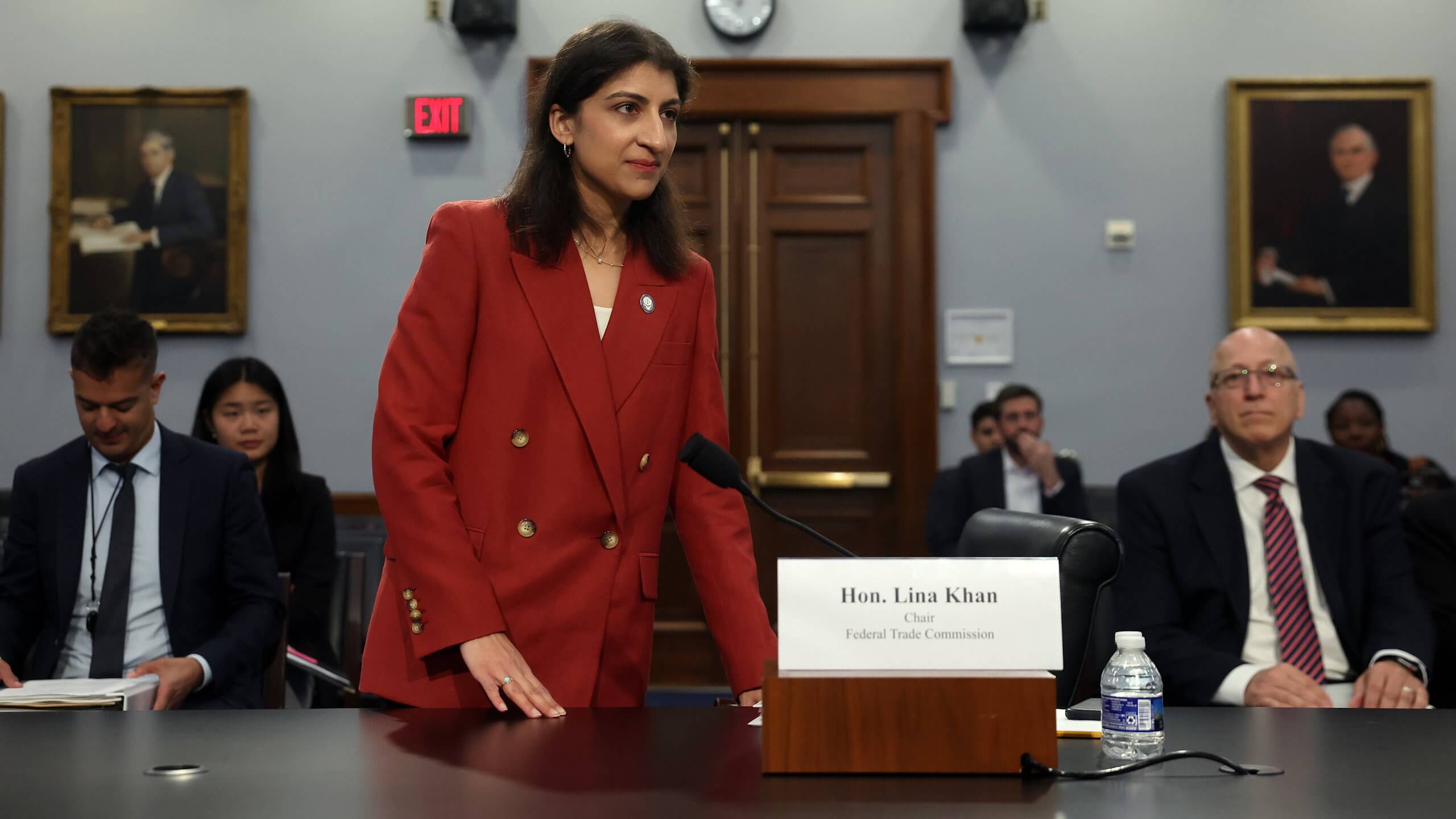
This article was originally published on American Greatness - Opinion. You can read the original article HERE

As antitrust policy goes, so does the national election … says absolutely no one. In a fair world, however, voters and the media would be agog at the economic and national security implications of a report released at the end of last week by the House Oversight and Accountability Commission on Chair Lina Khan’s stewardship of the Federal Trade Commission.
“During her tenure, Chair Khan abandoned agency norms, disregarded ethical standards, subverted due process rights by colluding with foreign regulatory regimes, and willingly became a political tool for the Biden-Harris Administration to carry out its ideological goals,” said Chairman James Comer (R-Ky). The story of an independent agency subverted by ideology, as important as it is, is not likely to linger in the minds of voters.
But one segment of the House report should resonate with voters. Khan has worked hand-in-glove with protectionist European Union regulators to throw a lead weight on the American economy, harming workers and consumers while exposing Americans’ personal information to malicious regimes.
Consider this administration’s reaction to the protectionist EU’s Digital Markets Act (DMA), which hits internet firms with 10-20 percent of their total worldwide annual turnover, potentially a death penalty fine even for the largest companies. The European Commission has so far targeted six companies as “gatekeepers” under the DMA. Five are American.
In 2021, Secretary of Commerce Gina Raimondo stated the DMA “will disproportionately impact U.S.-based tech firms.” The United States Trade Representative (USTR) labeled the DMA a digital trade barrier in 2023. However, the impact of heavy regulation of American industries by Europe is not a concern shared by the FTC.
Emails and documents unearthed by the committee reveal “a very high interest at the FTC in the DMA. There was sustained email traffic as well as several meetings between the FTC and EU regarding the DMA in 2022 and 2023. The emails from the FTC also show the Commission, including the Chair, followed the DMA as it progressed through the European Parliament’s process and participated in high-level conversations with their EU counterparts regarding its implementation.”
Maria Coppola, director of the FTC’s Office of International Affairs (OIA), congratulated EU officials on the passage of the DMA and expressed: “We are very enthusiastic here in Washington and look forward to the final step with the Council.” There are ongoing discussions between EU and FTC staff to discuss how Washington can assist in the implementation of a law that is explicitly designed to enforce anti-American protectionism.
The FTC also doubled down on anti-American protectionism by interfering with trade policy, specifically the U.S. proposals before the Indo-Pacific Economic Framework for Prosperity (IPEF). This framework was conceived in 2022 as a response to China’s attempt to dominate the Pacific Rim economies. It brought together Australia, Indonesia, Japan, the Republic of Korea, New Zealand, Vietnam, and others to counter China’s growing influence and protect U.S. companies from unfair treatment in foreign jurisdictions. After the digital trade chapters had cleared the interagency process to form the U.S. position, however, U.S. Trade Representative Katherine Tai was pressured by Khan into abruptly tabling it.
That position had insisted that international rules allow for cross-border data flows while prohibiting forced data localization and sharing of software source code. The FTC does not sit on USTR’s Trade Policy Staff Committee, the senior U.S. government interagency trade advisory group that consists of 19 federal agencies and offices. Yet the FTC, citing the need to protect its antitrust powers, successfully persuaded Tai to support compelling U.S. companies to share their internal source codes with foreign regimes. These keys to the kingdoms will not only savage the competitiveness of U.S. companies. They will balkanize the internet, a gift to authoritarian regimes everywhere. It will also give the worst regimes in the world the means to access the private data of American citizens and the cloud-held proprietary secrets of America’s leading businesses. National security secrets held in the cloud could also be at risk.
If this strikes you as conservative alarmism, consider the words of liberal Sen. Ron Wyden (D-OR), who summarized the decision as “a win for the Chinese government’s efforts to have unlimited access to U.S. data, a win for Chinese tech giants who want to bully smaller countries into following the Chinese model of internet censorship, and a win for China’s Great Firewall, which locks out American companies …”
In short, the FTC under Chair Lina Khan is working overtime on policies that gravely damage U.S. competitiveness and the personal and national security of Americans. Or, as Trade Representative Tai said, “We are turning the colonial mindset on its head.” Perhaps on Election Day, it will be the voters who will turn the anti-American, anti-consumer mindset on its head.
***
Robert H. Bork Jr. is the president of the Antitrust Education Project.
This article was originally published by American Greatness - Opinion. We only curate news from sources that align with the core values of our intended conservative audience. If you like the news you read here we encourage you to utilize the original sources for even more great news and opinions you can trust!










Comments